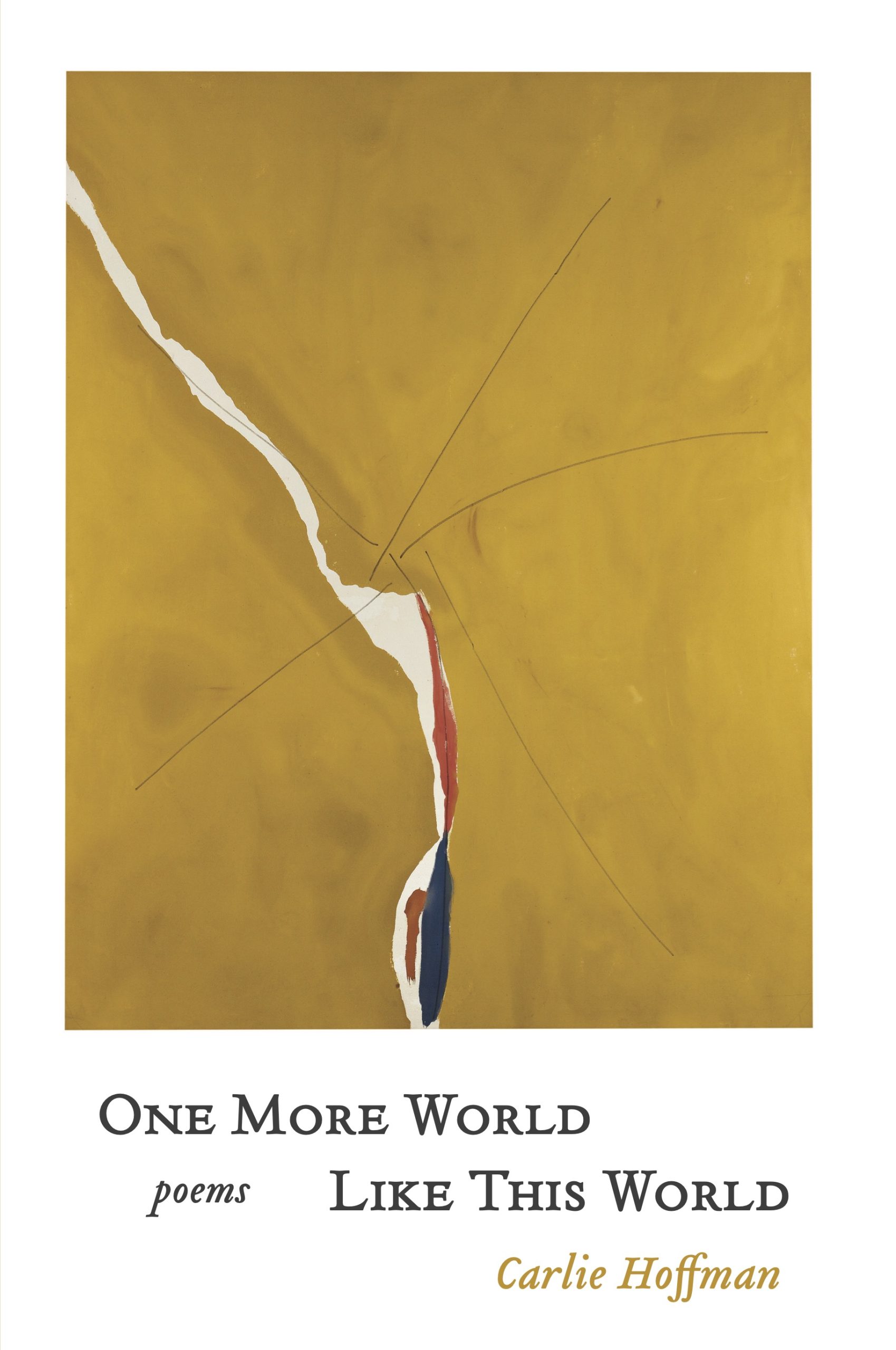
paper • 80 pages • 17.95
ISBN: 978-1-961897-28-1
eISBN: 978-1-961897-29-8
March 2025 • Poetry
Reviewed in Los Angeles Review of Books
Named a Library Journal 2025 “Title to Watch”
Following When There Was Light (Winner of the 2023 National Jewish Book Award in Poetry), Carlie Hoffman’s third collection of poetry, One More World Like This World, is a lyrical study of contemporary life—its lines echo amidst the imbalanced interdependence of globalization, in the wake of third-wave feminism, and from the active collapse of our American empire. Hoffman’s poems brilliantly survey both how women have been flattened, misunderstood, and displaced throughout time and across disciplines, and how women have made themselves at home in their minds and within their specific histories.
Approaching adaptation as a coping mechanism against perpetual exile, Hoffman recasts female archetypes as contemporary women, drawing a throughline between the narrative past and present circumstances. Persephone follows her captor “deeper inside the replica of girlhood,” and Eurydice in New Jersey “knew where she was going” as she made her way to death across “the parking lot and graveyard’s / fertile grass.” Rather than simply retelling a familiar tale, Hoffman’s poems illuminate mythology as a discourse with time and recognize solidarity between women as a conversation that continues beyond the grave.
The timeless wisdom of this collection is how it unveils the constant and concurrent tragedies taking place everywhere around us while salvaging the irreducible pleasure of living from the wrecks of perception. Despite it all, we want to live. Perhaps, Hoffman seems to say, we were expelled from the garden not once but again and again, and, each time we exit, we go out searching for one more world like this world. “The apple’s a for-sale sign swaying from the tree,” she writes in the collection’s final poem “Borges Sells Me the Apple, Sells Me the World.” Or, to revisit the stage set in “Teaching the Persona Poem at Ramapo College of New Jersey,” “Outside the classroom window, snow falls, unencumbered / by a wind from nowhere the night Eurydice chooses to stay.”
Panorama After Foreclosure
After Federico García Lorca and Yehuda Amichai
I used to think it could be solved this way:
like birds huddled above the U-Haul
along the branch rusting through
its green roof. Skycreatures. Balloon
on the house. My mother shrieks
in the garden. The snake
nude against the light. Here: I give you
my feathers—and here are all
my clouds, the volcano’s intimacy—
but the birds aren’t ready
to be oxen again, the mountain matted
with Sisyphus’ sweat. Always the disdainful
shelves of fruit, which is history. The engine
shivers. The dead stay dead.
Carlie Hoffman’s beautiful new collection is a book about language, translation, and grief. Also a book about prayer and myth. A book about ancestors. A book about girlhood and the body. A book about home. And a book about witnessing. As these poems grapple with war and grief and silence, I love how many other writers are in community here, from Amichai to Borges to Celan to Ausländer. Full of formal invention and surprise, Hoffman’s poems take us to Brooklyn, New Jersey, Europe, and Russia, then to the underworld and back. And these poems ask urgent questions: what is the role of language in the twentieth and twenty-first century? What work can poetry do in the world? One More World Like This World demands our attention.
Carlie Hoffman’s powerful One More World Like This World may open with a poem expressing a desire for home, but what makes this collection both poignant and unique is its restive lack of one. This fraught condition has been an ongoing concern in Hoffman’s work: “How I have // no place, but this small oracle, ash // from the synagogues, a gust of wind // ruffling the sheaves of paper.” A song filled with shadows is the ephemeral location that her poems create as they hover between past and present, between material labor and spiritual yearning. In this way, they depict a reality rooted in a quotidian made strange by history, myth, and Hoffman’s personal vision. One More World Like This World beautifully yet darkly rewards its reading.
Wise beyond her years, Carlie Hoffman’s One More World Like This World resonates with experience, emotion, and acute prosodic and poetic intelligence, without ever wearing any of it on her proverbial sleeve. Though the landscape has gotten ever more bedraggled, Doctor Williams would have easily recognized the diners, parking lots, and for-sale signs dotting the terrain of these poems. And Jack Spicer would have understood exactly why Eurydice shows up. As so much that comes to us now feels ready-made, there is a resilience and clarity in Hoffman’s work that is all too rare and warrants our close attention.
Carlie Hoffman’s One More World Like This World…brims with the dissociation wrought by contemporary life.
Hoffman’s beautifully crafted third collection (after When There Was Light) savors the everyday and grasps the ineffable with a tone that easily includes the quotidian alongside the mythological and the historical…In Hoffman’s poems, mythology illuminates the timelessness of female oppression. She excels at providing vivid details that capture the varied experiences and hardships faced by women, from Eurydice’s “boring /underwear” in the poem “The Townspeople Contemplate Eurydice” to a friend in high school “bleeding in the parking lot” in “Rose Ausländer, Jane Roe, & Me”. Throughout, Hoffman grapples eloquently with contemporary tragedy and sadness while pushing past silence. It’s a wise and moving volume.
Hoffman’s imagination is dynamic, vital, and constantly processing the ways in which events of the past mingle and cast their shadows over the present.
One More World is a sustained experiment in constructing a coherent personal register from grand forms – technical, sacrificial, mythological, memorial – and its accomplishment involves the translation of High Modernism into a lyric mode.